Curriculum
At Edwards Hall, we aim to provide an engaging learning environment where children are challenged to think deeply and creatively, so that they become articulate, motivated, life-long learners who are able to display tenacity in the face of challenges. We aim to facilitate a culture of deep thinking, where knowledge is retained and can be applied to new challenges; give children a rich and varied cultural provision so that they are advantaged in the wider world and prepare them well for the next stages in their education and wider life.
To find out about our Early Years curriculum, please click here.
How do Learning Journeys and Knowledge Organisers enhance learning at Edwards Hall?
/i/video/SOLO__Knowledge_Organisers_and_Learning_Journeys.mp4
Learning Journeys and Knowledge Organisers
| Year 1 Learning Journey & Knowledge Organiser | Year 2 Learning Journey & Knowledge Organiser |
| Year 3 Learning Journey & Knowledge Organiser | Year 4 Learning Journey & Knowledge Organiser |
| Year 5 Learning Journey & Knowledge Organiser | Year 6 Learning Journey & Knowledge Organiser |
What is Solo Taxonomy?
Closely linked to the principles of metacognition, SOLO taxonomy is a ‘model of learning that makes learning intentions and success criteria visible to students and teachers’.
SOLO stands for the Structure of the Observed Learning Outcome. It represents the process of learning, through foundational knowledge, through to more complex understanding that requires the learner to make links with what they already know, and apply knowledge to novel or creative situations.
The stages are:Prestructural – A student knows nothing about a topic/ can do the skill if someone helps them.
Unistructural – A student knows one relevant idea/ can do the skill if directed.
Multistructural – A student knows a lot of relevant ideas but can’t make links between the ideas/ aware of the skills they need but sometimes make mistakes.
Relational – A student is making links between ideas and is able to explain their relevance/ is strategic – knows why and when to use the skill and can identify mistakes made.
Extended Abstract – A student can evaluate information, draw conclusions, make predictions, or use the information to look for new ways to use their skills. They are a role model and can teach others the skill.
It is represented in school using these symbols



